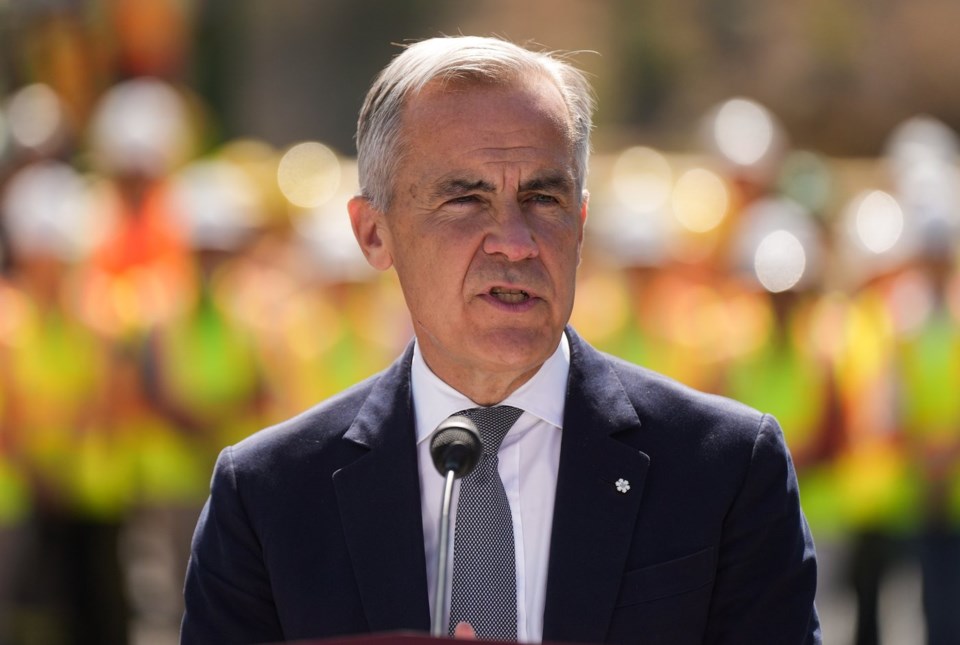OTTAWA — Ontario and Saskatchewan remained at odds over Canada's response to U.S. President Donald Trump's escalating trade war Wednesday as the premiers prepared to meet with the prime minister to talk trade.
Prime Minister Mark Carney was holding virtual meetings in private with his cabinet and the premiers Wednesday afternoon, less than a week after Trump ramped up his trade assault on Canada with a baseline 35 per cent tariff.
The new tariff applies only to goods not covered by the Canada-United States-Mexico agreement on free trade, better known as CUSMA.
The latest levy took effect on Friday after the two countries failed to hit an Aug. 1 deadline to secure a new trade agreement.
Before meeting with Carney, Ontario Premier Doug Ford said he was frustrated by the impacts of high U.S. tariffs on his province's economy and called again for retaliatory tariffs.
"You can't have tariffs on one side and not the other. I still stand by what I say — dollar for dollar, tariff for tariff," Ford told reporters at a news conference Wednesday in Thornhill, Ont.
"They understand strength, not weakness, and we should never, ever roll over and be weak."
Saskatchewan Premier Scott Moe, meanwhile, said Wednesday Canada should dial down its retaliatory tariffs.
"Maybe it's time for Canada even to at least not add additional counter-tariffs in this space, but to even consider removing some of the counter-tariffs that are harmful to Canadian businesses and Saskatchewan businesses today," Moe said during a radio interview, adding that Canada is largely "protected" by the CUSMA trade pact.
Moe said his province is working to protect industries that are being hit hard by tariffs, including the steel sector.
"What we've done is pull forward a significant amount — 10 years, actually — of Crown procurement to support the steel industries here in Saskatchewan," he said.
Moe gave credit to Carney for his government's efforts to strengthen trade ties with other countries, including Mexico, particularly while Canada remains subject to China's canola oil and meal tariffs.
When asked to explain why his government ended up putting American liquor back on the shelves and returning to its standard procurement processes, Moe said the government already prioritizes Saskatchewan companies.
"We need to get to that space in a more solid form with our largest trading partner, the United States of America, and someone is going to have to take the early steps," he said, noting Alberta has also shifted its policies.
Alberta Premier Danielle Smith's office said she would not be issuing any statements ahead of the meeting.
Ford said he wants to see more done to stimulate the economy. He called on Ottawa to cut taxes and said the Bank of Canada should drop its interest rate.
"We have to get the governor of the Bank of Canada to lower those damn interest rates from 2.75," he said. "Knock 'em down. Build confidence.
"Let's work together on getting rid of the HST on homebuyers, and not just first (time) ones. Let's stimulate the market and we'll follow suit if the federal government does that."
Ford said Wednesday he had a "good conversation" with U.S. Commerce Secretary Howard Lutnick on Tuesday that was "positive," and he believes the "prime minister is doing everything in his power to get a fair trade deal with the U.S."
Carney told a press conference in B.C. on Tuesday that he has not talked to Trump in recent days, but will speak with him "when it makes sense."
The prime minister added that about 85 per cent of trade with the U.S. remains tariff-free because of CUSMA.
Sector-specific tariffs, like the 50 per cent duty on steel, aluminum and copper, remain in place.
Foreign Affairs Minister Anita Anand and Finance Minister François-Philippe Champagne were in Mexico City on Wednesday, part of a two-day mission to meet with Mexican officials and businesses on trade.
— With files from Lisa Johnson in Edmonton, Alta. and Allison Jones in Thornhill, Ont.
This report by The Canadian Press was first published Aug. 6, 2025
David Baxter and Kyle Duggan, The Canadian Press




